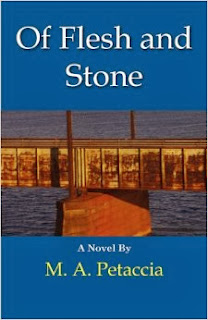REASON ON FIRE: Reading Modern Poetry
by
Mark R. Conte
Fifty years ago, John Ciardi began the introduction to his book, How Does A Poem
Mean? by saying "A poem is a formal structure in which many elements operate at the same time." Any English teacher
in grade school
could have shown you the meters and rhyming schemes of the many forms of poetry. They could point out alliteration and assonance, and they could do it all in the rhythms of each particular poem, even though the language was often beautiful as
in Dylan Thomas' poetry.
“…time held me green and dying
.though I sang in my
chains like the sea...”
Or wise as in Richard Eberhart’s poetry.
“…as man made stupid
to see his
own stupidity? Is God by definition
· indifferent. beyond us all?..”
There was usually more emphasis
put on the structure
of the poem rather than the language. English teachers could dissect a poem and discuss intelligently the many parts of the many forms of
poetry. With the forms gone, poets
concentrated more on the language of the poem and the language at times evolved to its highest form. At the same time,
civilizations were minimizing the
language to the shortest method of communication because everything depended on time. We
were racing in opposite directions. It’s like comparing
stone age man’s different sounds of
communication to William Shakespeare “To be or not to be….” In these modern times, it is not as easy to explain what is poetry and what is not.
Sometimes there is a thin line
between prose and poetry. Consider these lines of prose from Going After Cacciato by Tim O'Brien.
“…Bats fluttered in the dark. Rodents, snakes, cobwebs stretching like curtains. The stench of death. Strange creatures underfoot, the blindness of
graves…”
O'Brien tight-walks back and forth from prose to poetry. Most English teachers are so intimated by modern
poetry that they fall back on teaching the classics
or other dead poets, as in "The
Dead Poets Society."
Even poets are reluctant to say which
is good poetry and which is not. Critiques are now
limited to the hawking of a fellow
poet's work, which look like dust jacket quotes
for
the book ads appearing in literary
magazines. This reluctance of expertise has created
openings for other types of poetry .that would have otherwise not been
recognized
so readily. These are
the category poets. Poets that write specialized poetry that fit in one category or another, but would not exactly be put in an anthology with James Dickey, Carolyn Forche and W. S. Merwin. Also, now
everyone who has taken an English course is suddenly writing poetry, in high school, in community colleges and universities; though most of these are only being published in small local magazines, they help bridge the gap from the public to poetry that is sorely needed. This may be a good place to start reading poetry. However, in its best
example, modern poetry depends upon the elegance of the language. It has to be so rich that you can say in twenty or thirty lines what most writers take over four hundred pages of prose or rhetoric to say, and often not as well.
The same is true
of a good modern poem. You’ve spent the whole day saying,
“Cool, Out of sight, hello!” Now you are reading;
…So I would hear out those lungs,
The air split into nine levels
Some gifts of tongues of the whistler…”
You can’t rush through this James Dickey poem
and hope to digest it in one
reading. Often you have to read and
reread a poem until you
have understood all the edges of the poem.
First, you need to
know that poets look at things differently.
“Lately,
I’ve become accustomed
To the
way
The ground opens up and
Envelopes
me
Each time I go out to walk
The dog.
Or the broad edged silly
Music the
wind
Makes when I run for a bus…”
-Amiri Baraka
They say things to lovers you wish you had said.
“…Cool and naked together,
Under this tree for a moment,
We
have escaped the bitterness
Of
love, and love lost and love
Betrayed. And what might
have been,
And what might be, fall
Equally
Away with what is, and leave
Only these ideograms
Printed on the immortal
Hydrocarbons of flesh and stone.”
-Kenneth
Rexroth
Or the frenzy of
Mark Strand’s poetry.
…”It is autumn. People are
Jumping from jetliners
Their relatives jump into the
Air to
join them
That is what the shrieking is
About. Nobody wants
To leave, Nobody wants
Stay behind.
Or the ravages of war.
“…All raid was dust.
Its granules were our tears.
Throats burst as universal
Winter
rose
To kill the whole green sky.
The last tree
bare
Beneath its canopy of
Poisoned air.
-Carolyn Kiser
Poets reach into the depths of our souls
and show us who we are or who we could
be. It is not always easy, but it’s well
worth the time.
Guest Blogger Bio
I have had fiction, poetry, articles
and guest columns in 67 publications including Yankee, Poetry International, Sothern
Poetry Review, Potomac Review, Philadelphia Daily News, Miami Jerald, New York Times
and Washington Post. I was director of the Florida State University Poet
Series, appointed Master Poet by the Florida Arts Council and assistant
director of the FSU CPE. My previous books are Walking on Water (Poetry, 1986), Sex in the 90s (1993), In the Arms
of Strangers (2003), Five Days to
Eternity (2004), The Judas Scroll
(2005), Of Flesh and Stone ((Poetry,
2009), The Ghost (2013) and The Death of Sherlock Holmes & Other
Stories (2014). I am a member of the Authors Guild and the Academy of
American Poets.
Author Links:
Website: http://www.markrconte.com
Facebook: https://www.facebook.com/mark.conte2
Twitter: https://twitter.com/proseman
Amazon Author page: http://www.amazon.com/Mark-Randolph-Conte/e/B003U4ULJ8/












No comments:
Post a Comment